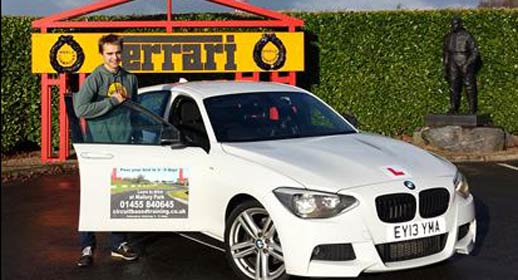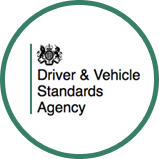
Intensive course or weekly driving lessons?

Many of driving schools would have you believe, that it takes around 6-9 months, to learn to drive. It's the equivalent of around 40-45 hours spread out over the months. This is only because they want you to stay on their books for as long as possible. Let's face it, the longer you are with them, the more money they make. It's not uncommon for an instructor to advise further training because you are "not ready for test", in their eyes, even though you think you are. The "4 month waiting list for test slots" (Daily Mail, August 2015), is also used as an excuse, to continue with further driving lessons over and above what was initially agreed. Quite often the lessons are interupted by illness, holidays, instructor not being available, pupils forgetting about a lesson, not being able to make a lesson bacause something urgent has come up etc etc. This is annoying and time consuming for everyone involved. Some people have started off with the intention of taking their test in six months, only to find that they are nowhere near, 12 months later. Some feel that their instructor holds them back intentionally and has them performing the same routines, time and time again. Some instructors spend the first 10-15 minutes of the hourly lesson, recapping what you did the previous week. How much wasted time is that? What was expected to be around £400 - £500 over 6 months, can soon become £1,600 - £1,800 over a year or more. This can lead to a general fear of the test and sometimes pupils stopping lessons altogether due to lack of funds, general apathy, lack of motivation or not being able to see an end to the monotony of the weekly lessons.
An intensive driving course, is nine months worth of hourly lessons condensed into one week. No excuses, a solid timetable to work to and an end result in a matter of days. With a clear, achievable objective, it's percieved as the solution to all the rigours and traumas associated with the way people took their tests years ago. Times have changed, techniques are different, training can be too. When compared to the old ways, Intensive driving lessons make far more sense. You'll take in much more information, as you are constantly learning and not trying to remember what you did 2, 3 or 4 weeks ago. The learning curve is much steeper. Because of this, learner drivers benefit from an intense training scheme that focuses on the objective and delivers results quickly.
There is no "We'll see when you are ready" (very frustrating), when it comes to the test date. It's preset for the end of your driving course. This helps you concentrate on the important subject of passing the driving test. Driving is a very important subject that should require your full attention, You have a legal obligation to ensure you are safe on the road. You can't dabble at it as a part time gesture and expect to be any good. You need to devote yourself to it and immerse yourself in learning as much as you possibly can, in the time available. Too many people are killed or seriously injured on UK roads every year, mainly because people don't take it seriously enough, they are too distracted by their phones or are simply not trained to a high enough standard. They genuinly don't think it will happen to them, but often when an accident occurs, it's down to driver error. Lack of concentration, poor planning and low skill levels are among an endless list of contributing factors. Let's make sure that you are fully prepared for the road ahead.
Choose which path suits you best, it may be weekly lessons are betterfor some people. It may be that an intensive course is good for some people but not for all. Results are never gauranteed either way.
Many new drivers face huge insurance premiums, simply because a very high percentage of new, young drivers, are involved in accidents.By taking a more professional approach to training, you can ensure that you are not included in these disproportionate accident statistics. If new drivers are trained to a higher standard from the outset, it will make the roads much safer for everyone. The old style of driver training, where you dabble at it every now and again, until somehow it seems to click, has not improved driver safety or reduced accident rates considerably, among new drivers. Insurance companies across the UK confirm this. You've only got to watch "Barely legal drivers", on channel 4 to see an example of the standard of new drivers who have passed this way. Let's try to improve the safety of new drivers by giving them the experience they need. An intensive driving course, especially with the benefits of a race track, can deliver much more relevant training, to equip new drivers with the skills they need to enjoy driving and remain safe in those first few years. It's the depth of training recieved that will enable them to adhere to the Diving Standards agency motto of "Safe driving for life".
Official DVSA driving test with Circuit Based Training


